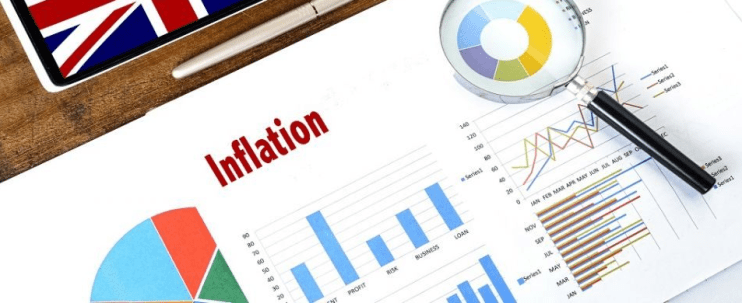Some City investors are starting to get nervous about inflation

The UK will release new inflation data later this week, but if recent investor comments and analyst notes are anything to go by, it is becoming increasingly clear that some within the investment community are starting to get nervous about inflation.
According to last month’s figures by the Office for National Statistics (ONS), the UK’s annual rate of inflation jumped from 0.3 per cent in November 2020 to 0.6 per cent in December of last year. January is expected to be announced this week.
While these levels are still fairly low by historical standards, the recent pickup accompanied by the huge financial stimulus in the economy, have increased warnings from several quarters about the prospect of much higher inflation.
The current year-on-year inflation rate is 1.2 per cent which remains low in comparison to the last 20 years, Alan Miller, chief investment officer and founding partner at Chelsea-based investment firm SCM Direct, told City A.M.
“The ONS blamed the pickup in inflation on increases in transport costs, computer games, games consoles and children’s toys offset by cheaper takeaway food and lower furniture and household equipment prices,” Miller pointed out.
“So far in 2021, the price of Brent oil has risen by 11 per cent, suggesting a continuing increase in headline numbers,” he added.
However, according to Miller, the key question is, what do the markets believe will happen to inflation over the coming years?
“A statistic used by many is the so-called ‘UK 10-year breakeven inflation rate’, which measures the difference between the yield of a UK government bond with a maturity of 10 years to the equivalent Inflation-linked bond,” Miller explained.
This shows, only a small uptick in inflation expectations over the next 10 years, averaging around 3 per cent per year. So no reason for concern then? Not entirely, said Miller.
Low interest rates
Even the best bank and building society accounts do not offer interest of more than 0.5 per cent per year, while the current Bank of England’s rate is just 0.1 per cent, and this has been 0.5 per cent or less for more than a decade.
“So, savers who sit in cash are destined to see their savings fall in ‘real’ terms over the coming years,” Miller explained.
UK house prices may bring more comfort. They have recently shot up, fuelled by the stamp duty holiday. However, the question is for how long, he wondered.
“Given the combination of higher unemployment, higher taxes, and higher interest rates, can this growth continue? It is highly debatable,” Miller said.
UK government bonds do not provide much protection either.
“The yield on 10-year UK government bonds is just 0.3 per year, so if the expectations of 3 per cent inflation are correct, an investor buying these bonds is likely to lose about 2.7 per cent p.a. in real terms, or 31 per cent of their money over ten years, in real terms,” Miller noted.
Shares
Finally, there is shares. Even though many of the largest dividend payers, such as the larger banks and oil companies, have slashed their dividends during the Covid epidemic, Miller thinks there is still an attractive 3.4 per cent yield offered by UK shares at present.
“This is likely to rise as most banks restore their dividend,” he said.
The country’s biggest four banks, Lloyds, Barclays, NatWest and HSBC, all cancelled their dividends in 2020 after the Prudential Regulation Authority instructed them to set aside capital to support the UK economy.
However, despite the uncertainty regarding the economic impact and loan losses, Miller anticipates that these dividends will slowly be restored, resulting in the future yield from holding UK stocks rising to around 4.5 per cent over the coming years.